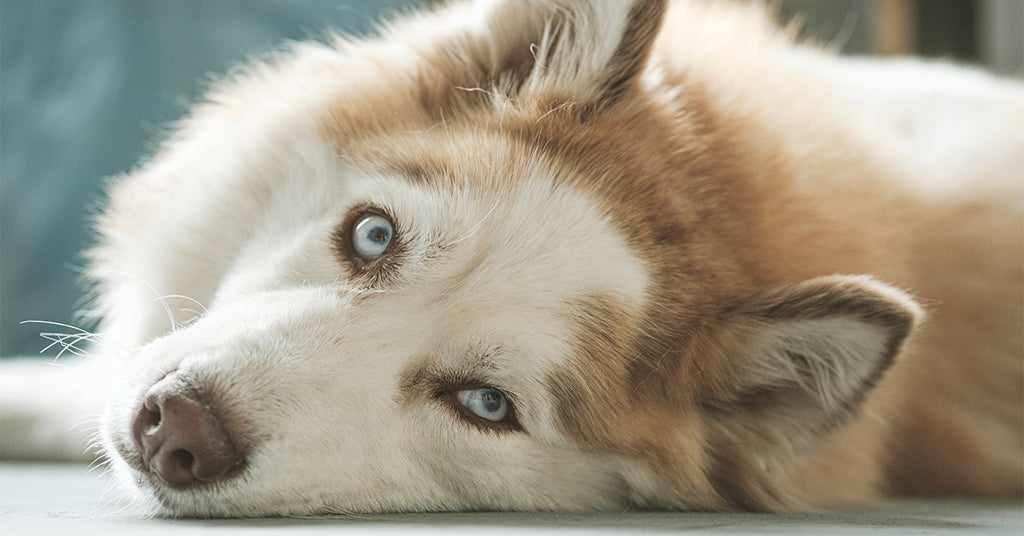So... You Rescued a Husky. Now What?

If you recently rescued a Husky from a shelter, one truth to understand is that it may take several months for your new family member to adjust to her new home; furthermore, your new best friend may still be experiencing the doggo-equivalent of loss or "grief" over losing touch with her former family.
Here are some things you can do to ease the adjustment and make your new friend feel right at home.
Obedience Training. Depending upon the age and previous training of your rescue, you may find yourself imagining your rescue dog is too old for training or doesn't need it, but consider this. Your new Husky hasn't trained with you. Beyond reinforcing commands like come, sit, stay, or down, obedience training creates opportunity to improve communication between you and your Husky. It will foster a sense of teamwork and of belonging to one another. And you may be surprised how much more quickly your bond develops when you make obedience training a hobby for both of you.
Engage Your New Friend. You won't always know your rescue dog's background. Some Huskies may be afraid to initiate play. They may not even know how. No matter your dog’s age, consider this time in your relationship to be a formative period, and take responsibility for engaging your Husky in retrieving, agility, swimming, jogging, walking, or other types of safe, gentle fun. Playtime isn't just exercise. Playtime is a time to build friendship, loyalty, and trust.
Teach or Reinforce the Most Important Command. If you can succeed at teaching your rescue Husky to come when called, without fail, then you are well on your way to establishing an amazing bond. Begin practicing this command indoors at first — and outdoors on a leash. Work your way up to off-leash activity, and when you're practicing that, be sure to move around often. Don't stay in one place. This will "gamify" your training and encourage your new friend to want to engage with you.
Teach Her to Play Hide-and-Seek. This may sound funny, but your Husky's mentality has some similarity with that of very young children. Both love to play hide-and-seek. Finding you gives your dog a chance to "win." It also gives you another opportunity to reward your pup when she comes to you. Do this regularly, and over the course of a few weeks, you'll discover your Husky has become attentive. She'll have a strong desire to be with you.
Give Your Rescue a Sense of Purpose. You don't have to teach her to fetch the mail to give your Husky a sense of purpose, but you could. In fact, regardless of her age, it's possible to teach her many things. Any time you train, do it with a sense of importance. Even the act of training can be purpose enough for your dog. So can going with you on walks, going to bed when you do, or just spending time with you in the same way, every morning.
(May I suggest sharing time with her while you enjoy a cup of Husky Coffee Company Coffee?)
Socialize Your New Family Member. This is another thing rescuers can easily overlook, especially when adopting a friendly, experienced Husky. But, remember, your social group — and, by default, your Husky's — may be a bit different than what she was used to before you met her. Or worse... her former mentor may not have taken the time to introduce her to the world around her... to other people... other dogs. Your rescue may be timid, fearful, or anxious at any age. Do her a favor and let her get to know her neighborhood, her new friends, and family.
Groom Your Pet. Perhaps even more so than a new puppy, your Husky rescue may need acclimated to human touch. You can enrich your bond with her and enhance her desire for affection by grooming her regularly. Dogs in groups naturally reinforce bonds through grooming. You and your new roommate are not much different.
Go Places with Your Dog. Can you imagine any creature more curious than a puppy? To a puppy, the world is new and fascinating. Naturally, a puppy is driven to explore. Well, your rescue Husky's situation is pretty darn new, too. And you can help her explore by taking her on hikes, to visit new parks, on camping trips, or even just visits to grandma's house. Don't push her too hard, too fast.
Remember, your rescue dog needs time to adjust. But if you're doing all — or even much — of the above, you'll have a best friend who wants to go where you go, experience what you experience, and to be one-half of a supportive, respectful, fun, committed and loving duo — you and her.
Admittedly, every Husky is different. Some of these strategies will work better for some dogs than others. There's no doubt that rescue Huskies from various backgrounds need more of some activities and less of others, especially at the beginning of a new relationship...a new home. Yet, if you take the time to help your dog adjust, you'll form a lasting bond with your companion.
Finally, if you have any trouble with your new Husky, the best place to turn is often the agency you adopted her from. They'll usually have, at least, a little information about her background, and most people who do this work have incredible experience with animal care and behavior. Don't be afraid to ask for help.
You'll know you're doing things right when you see a light in her eyes and a wag in her tail. You'll know the connection when you've achieved it. And so will she.
Oliver Carson is a dog advocate, a Dog owner, and the founder of Husky Coffee Company. He's obsessed with his best friends, Fetty and Monty, and they are the inspiration for the company and this blog. Twenty percent of Husky Coffee Company's profits go to no-kill animal shelters, dog foster care organizations, and Husky Rescue operations. If you wish to place an order, use code "BLOG" for 10% off.
email: Oliver@HuskyCoffeeCompany.com
